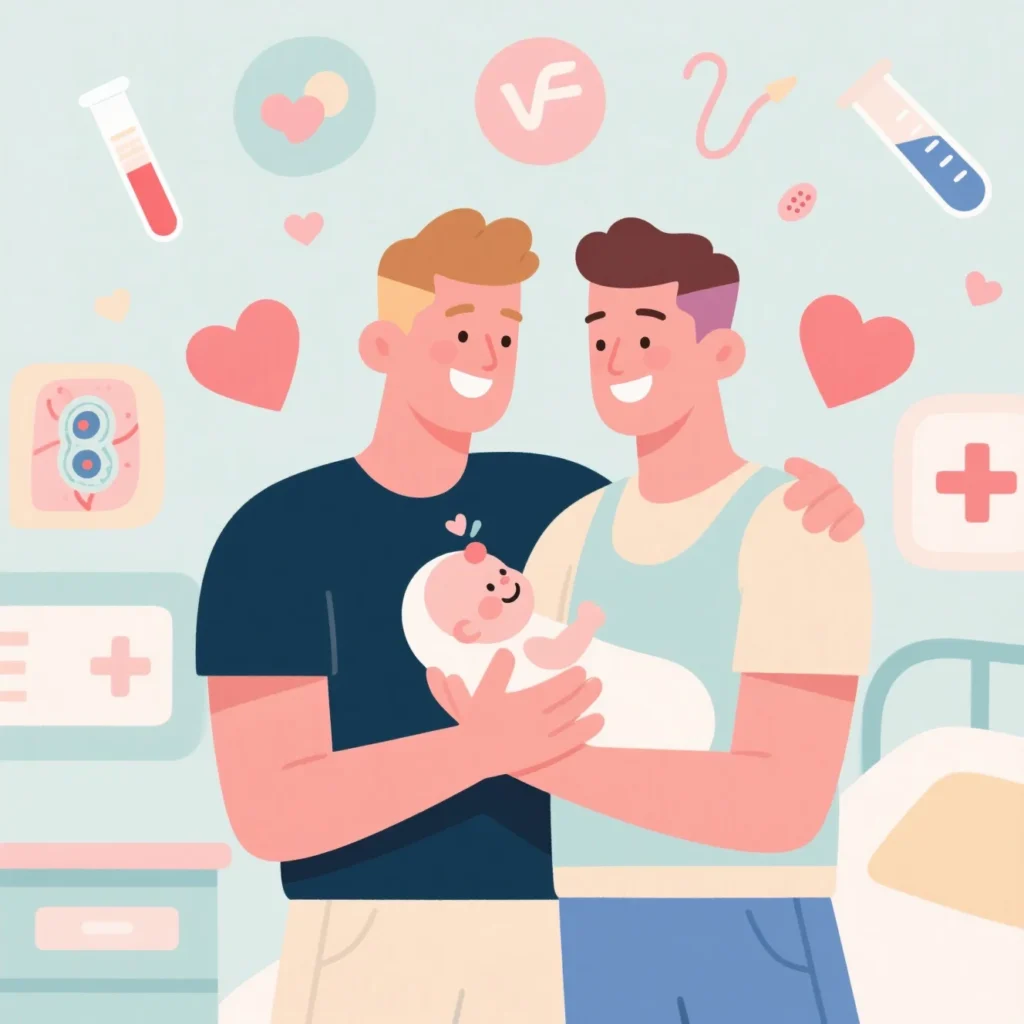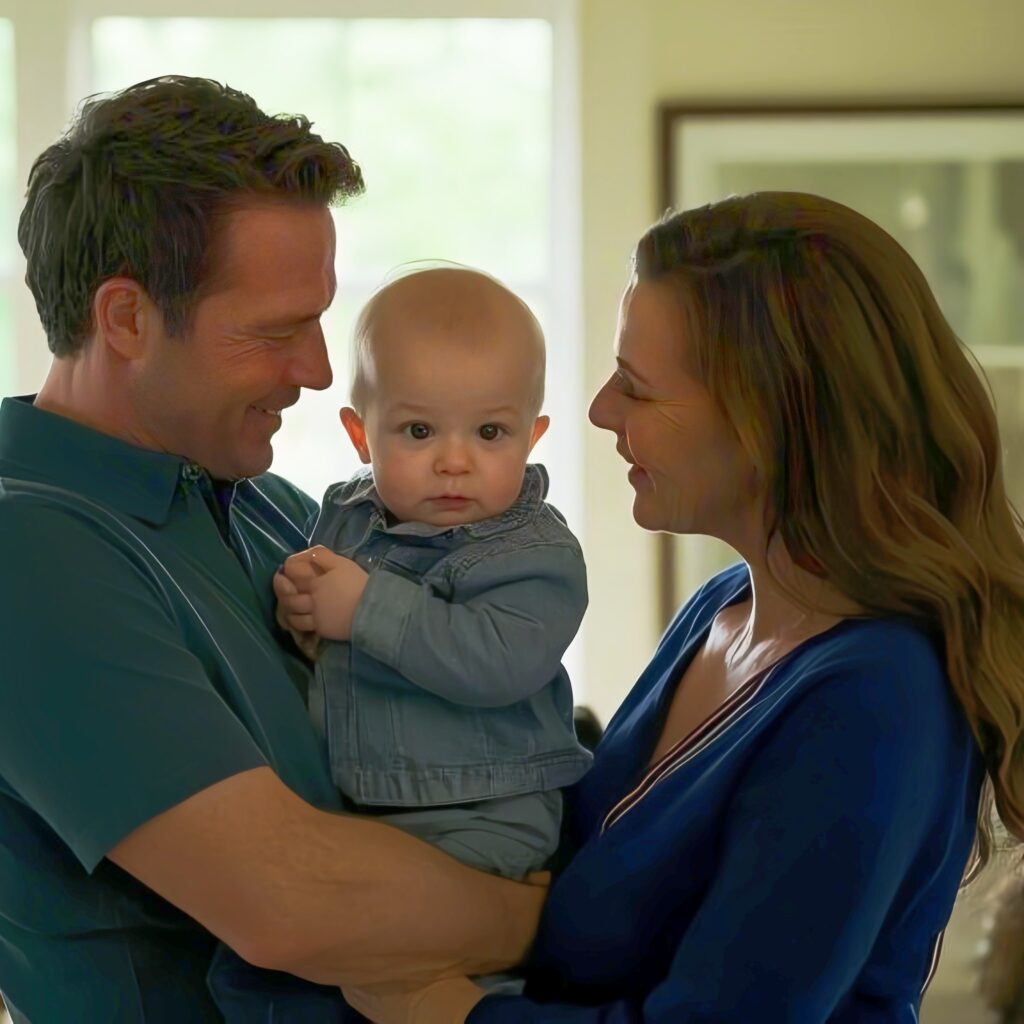Short answer:
Yes — with the help of assisted reproductive technologies like egg donation and surrogacy, two gay men can have a biological child.
👉 Each partner’s sperm can potentially be used, and the child will be genetically related to the biological father and the egg donor.
1️⃣ How It Works
Two gay men typically become biological fathers through a combination of:
👉 Egg donation (from a donor who provides the eggs)
👉 Surrogacy (a surrogate carries the pregnancy)
👉 IVF (In vitro fertilization) — the process used to create embryos in a lab.
One partner’s sperm fertilizes the donor’s egg, and the resulting embryo is transferred to the surrogate’s uterus.
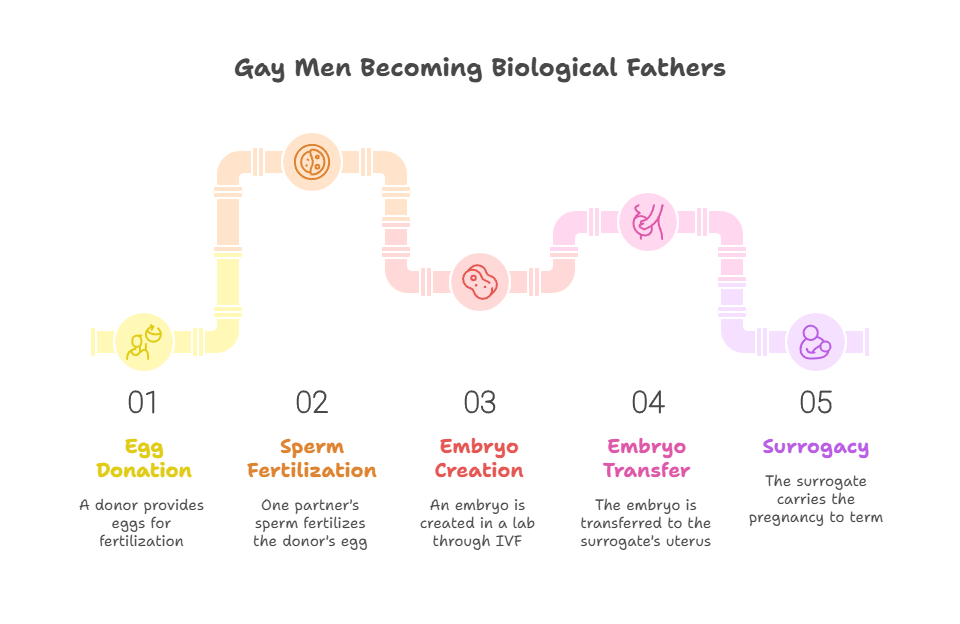
2️⃣ Can Both Partners Be Biological Fathers?
- Not for one child — a child can only have the DNA of one father and one egg donor.
- But many couples choose to fertilize half the eggs with one partner’s sperm and half with the other’s, allowing for biological children for both partners (often across two pregnancies or with twins if multiple embryos are transferred).
3️⃣ What’s Needed?
✅ An egg donor: provides the genetic material (eggs)
✅ A gestational surrogate: carries the pregnancy but is not genetically related to the child
✅ IVF clinic: creates and transfers embryos
✅ Legal agreements: ensure parental rights and protect everyone involved
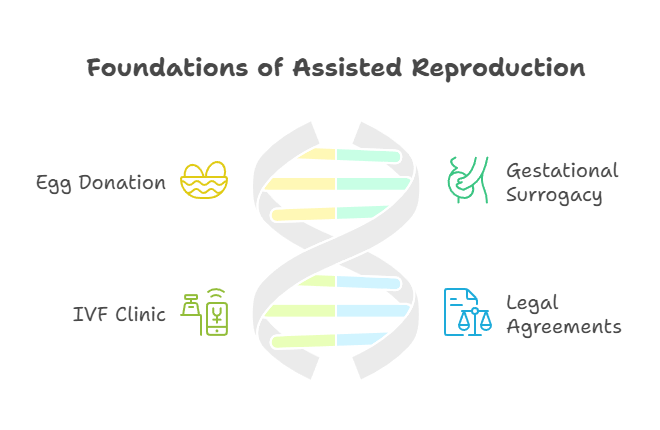
4️⃣ Costs and Considerations
- Surrogacy with egg donation can be very expensive — often $100,000 to $200,000+ depending on location and choices.
- Requires careful legal planning to protect parental rights.
- Emotional readiness and strong teamwork are essential.
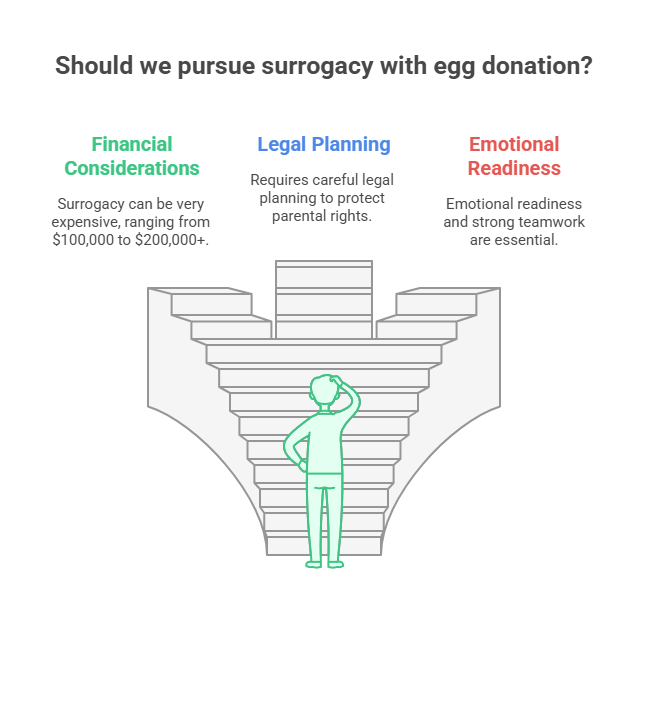
Conclusion
Can two gay men have a biological child?
👉 Yes — through egg donation, IVF, and surrogacy, one (or both) partners can become a biological father.
👉 It’s a complex but rewarding path to building a family, and many gay couples around the world choose this route today.
👉 With the right team and support, it’s absolutely possible!

